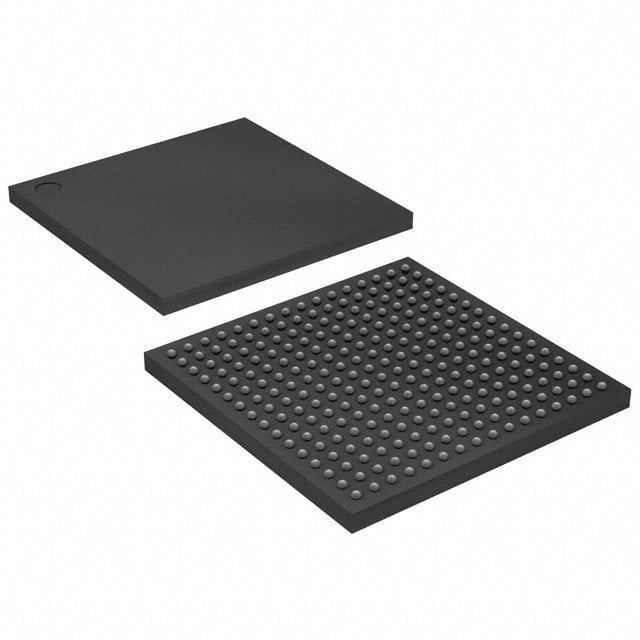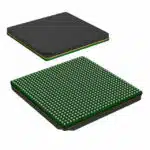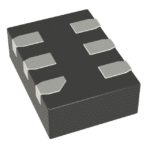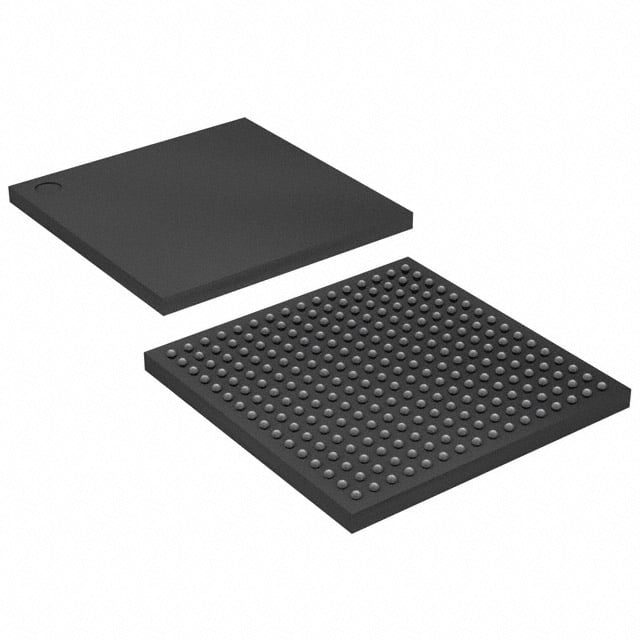
The EPM1270F256C4N, a type of complex programmable logic device (CPLD), plays a crucial role in modern technology. Its high logic density and flexibility make it indispensable across various industries. From consumer electronics to aerospace, this CPLD enhances efficiency and functionality. In consumer electronics, it enables advanced user interfaces and control functions. The automotive industry benefits from its use in engine control systems and self-driving features. Moreover, the industrial sector relies on it for automation and control systems. As technology advances, the demand for such versatile devices continues to grow.
You May Also Be Interested In these parts as follow:
80HCPS1848CBLGI,Renesas,Specialized ICs,RAPIDIO SWITCH 784FCBGA
MK60DN512ZVMD10,NXP,Embedded Microcontroller
AD7298BCPZ-RL7,AD,Analog to Digital Converters (ADC)
2N3700UB,Microchip,Bipolar (BJT) Transistor
AD22151YRZ-RL,AD,Magnetic Sensors
ADC128S022CIMTX/NOPB,TI,IC ADC 12BIT SAR 16TSSOP
NCP1654BD133R2G.ON,PFC (Power Factor Correction)
Key Takeaways
-
The EPM1270F256C4N CPLD is highly versatile, making it suitable for applications in consumer electronics, automotive, industrial automation, telecommunications, and aerospace.
-
Its high logic density allows for efficient handling of complex tasks, making it ideal for applications requiring robust processing capabilities.
-
The non-volatile configuration ensures reliability by retaining programming even when powered off, which is crucial for applications needing quick response times.
-
Low power consumption makes the CPLD an excellent choice for battery-powered devices, enhancing energy efficiency without sacrificing performance.
-
Flexible I/O options enable customization for various interfacing needs, ensuring seamless integration with other components in complex systems.
-
The inclusion of JTAG interface support simplifies programming and debugging, allowing for real-time access to the device’s internal logic.
-
Future trends indicate that the EPM1270F256C4N will integrate with AI and machine learning, enhancing its capabilities and expanding its applications.
Key Features of EPM1270F256C4N CPLD
The EPM1270F256C4N CPLD stands out due to its remarkable features that cater to a wide range of applications. This complex programmable logic device offers a blend of high performance and flexibility, making it a preferred choice in various industries.
High Logic Density
The EPM1270F256C4N boasts a high logic density, which allows it to handle complex logic functions efficiently. With a substantial number of logic elements and macrocells, this CPLD can manage intricate tasks that require robust processing capabilities. This feature makes it ideal for applications that demand high computational power and precision.
Non-Volatile Configuration
One of the standout features of the EPM1270F256C4N is its non-volatile configuration. This means the device retains its programming even when powered off, ensuring reliability and consistency in performance. Users benefit from the instant-on capability, which eliminates the need for external configuration memory and reduces startup time. This feature is particularly advantageous in applications where quick response times are critical.
Low Power Consumption
The EPM1270F256C4N is designed with energy efficiency in mind. Its low power consumption makes it suitable for battery-powered devices and applications where energy conservation is a priority. The CPLD’s ability to operate with minimal power without compromising performance highlights its versatility and adaptability in various environments.
Flexible I/O Options
The EPM1270F256C4N CPLD offers flexible I/O options, making it a versatile choice for various applications. This flexibility allows users to configure the input and output pins according to specific needs, enhancing the device’s adaptability in different environments. With 212 I/O pins, this CPLD supports a wide range of interfacing possibilities, accommodating diverse signal standards and protocols. The ability to customize I/O configurations ensures seamless integration with other components, facilitating efficient communication and data exchange within complex systems.
JTAG Interface Support
The EPM1270F256C4N CPLD includes JTAG interface support, which simplifies device programming and testing. JTAG, or Joint Test Action Group, provides a standardized method for accessing and controlling the internal states of the device. This feature enables developers to perform in-system programming, allowing for updates and modifications without removing the CPLD from its circuit. Additionally, JTAG facilitates debugging by providing real-time access to the device’s internal logic, helping engineers identify and resolve issues efficiently. The inclusion of JTAG support underscores the CPLD’s commitment to ease of use and reliability in various applications.
Applications in Consumer Electronics
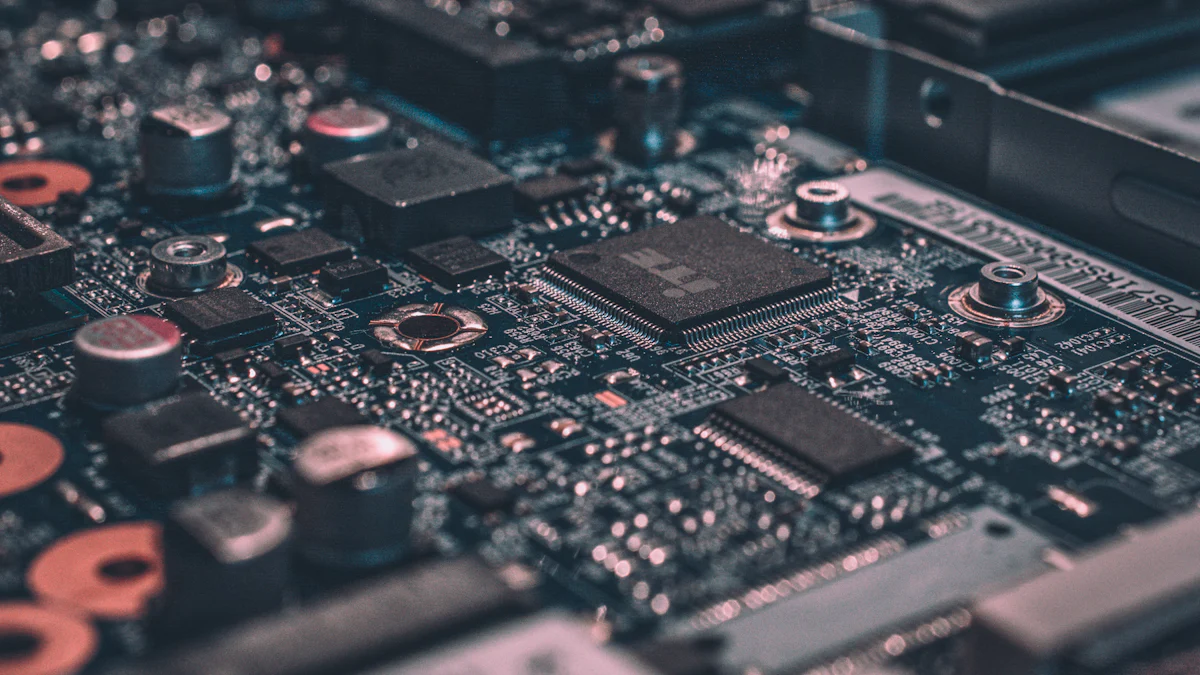
The EPM1270F256C4N CPLD finds extensive use in consumer electronics, enhancing device functionality and integration. This complex programmable logic device offers versatile solutions for various applications, ensuring seamless operation and improved user experiences.
Glue Logic for Device Integration
In consumer electronics, the CPLD serves as glue logic, bridging different components with mismatched interfaces. It connects processors, memories, and peripherals, ensuring smooth communication between them. By managing these connections, the CPLD simplifies the design process and reduces the need for additional components. This integration capability enhances the overall efficiency and performance of electronic devices.
Display Controllers for LED and LCDs
The CPLD plays a crucial role in managing display controllers for LED and LCD screens. It handles timing control and logic operations, ensuring precise synchronization of display elements. This capability allows for high-quality visual outputs, making it ideal for devices like televisions, monitors, and digital signage. The CPLD’s ability to manage complex display functions contributes to vibrant and clear visuals, enhancing the user experience.
Smart Device Interfaces
Smart devices benefit significantly from the CPLD’s flexible I/O options. It facilitates the integration of various interfaces, such as touchscreens, sensors, and communication modules. By supporting diverse signal standards and protocols, the CPLD enables seamless interaction between smart devices and their components. This adaptability ensures that devices remain responsive and efficient, meeting the demands of modern consumers.
Applications in Industrial Automation
The EPM1270F256C4N CPLD plays a pivotal role in industrial automation, offering solutions that enhance efficiency and precision. This complex programmable logic device provides the flexibility and reliability needed for various applications within the industrial sector.
Control Systems for Automation
Control systems form the backbone of industrial automation. The CPLD excels in this area by implementing state machines and sequencers. These elements manage the flow of operations, ensuring that processes run smoothly and efficiently. By handling custom control logic, the CPLD optimizes the performance of automation systems. This capability allows industries to achieve higher productivity and maintain consistent quality in their operations.
I/O Expansion for PLCs
Programmable Logic Controllers (PLCs) are essential in industrial settings. They require robust input and output capabilities to interact with various devices and sensors. The CPLD offers a solution through I/O expansion. With its flexible I/O options, the CPLD enhances the connectivity of PLCs, allowing them to interface with a broader range of equipment. This expansion capability ensures that PLCs can adapt to the evolving needs of industrial environments, supporting more complex and diverse applications.
Custom Logic for Process Control
Process control demands precision and adaptability. The CPLD provides custom logic solutions tailored to specific industrial processes. By implementing specialized logic functions, the CPLD ensures that processes operate under optimal conditions. This customization enhances the accuracy and reliability of process control systems, leading to improved efficiency and reduced downtime. Industries benefit from the CPLD’s ability to adapt to unique requirements, making it an invaluable tool in maintaining competitive advantage.
Applications in Telecommunications
The EPM1270F256C4N CPLD plays a significant role in telecommunications, offering solutions that enhance communication systems’ efficiency and reliability. This complex programmable logic device provides the flexibility and performance needed for various applications within the telecommunications sector.
Protocol Conversion and Bridging
Telecommunications often require seamless communication between devices using different protocols. The CPLD excels in protocol conversion and bridging, enabling devices to communicate effectively. By implementing logic for protocol conversion, such as SPI to UART or I²C interfaces, the CPLD ensures compatibility between diverse systems. This capability simplifies network design and reduces the need for additional hardware components, enhancing overall system efficiency.
Data Routing and Signal Multiplexing
Efficient data routing and signal multiplexing are crucial in telecommunications. The CPLD handles these tasks with precision, managing high-speed data routing and signal multiplexing in networking equipment. By efficiently directing data traffic, the CPLD optimizes network performance and reduces latency. This feature is essential for maintaining reliable communication in complex networks, ensuring that data reaches its destination accurately and promptly.
Communication Protocol Implementation
Implementing communication protocols requires precision and adaptability. The CPLD provides the necessary tools for communication protocol implementation, allowing developers to customize logic functions for specific protocols. This customization ensures that communication systems operate under optimal conditions, enhancing their reliability and performance. The CPLD’s ability to adapt to various protocols makes it an invaluable asset in the ever-evolving telecommunications landscape.
Applications in Automotive Industry
The automotive industry leverages the EPM1270F256C4N CPLD to enhance vehicle functionality and safety. This complex programmable logic device offers solutions that improve in-vehicle networking, driver assistance systems, and sensor signal conditioning.
In-Vehicle Networking Solutions
In modern vehicles, efficient communication between various electronic components is crucial. The CPLD facilitates in-vehicle networking solutions by managing data exchange between different systems. It ensures seamless communication among engine control units, infotainment systems, and other electronic modules. By implementing custom logic functions, the CPLD optimizes data flow and reduces latency, enhancing the overall performance of the vehicle’s network.
Advanced Driver Assistance Systems
Advanced Driver Assistance Systems (ADAS) rely on precise data processing and control logic. The CPLD plays a vital role in these systems by executing complex algorithms and managing real-time data. It processes inputs from cameras, radars, and sensors to provide features like lane departure warnings, adaptive cruise control, and collision avoidance. The CPLD’s ability to handle intricate logic functions ensures that ADAS operates efficiently, contributing to safer driving experiences.
Signal Conditioning for Sensors
Sensors in vehicles require accurate signal conditioning to function effectively. The CPLD excels in this area by adjusting and filtering sensor signals before they reach the main control units. It ensures signal integrity and timing accuracy, which are essential for reliable sensor performance. By providing customized logic solutions, the CPLD enhances the precision of sensor data, supporting critical applications like engine management and environmental monitoring.
Applications in Aerospace and Defense
The EPM1270F256C4N CPLD plays a vital role in aerospace and defense, providing solutions that enhance avionics, navigation, and system interfaces. This complex programmable logic device offers the flexibility and reliability needed for critical applications in these sectors.
Avionics and Secure Communication
In avionics, the CPLD ensures secure and efficient communication between various aircraft systems. It manages data exchange among flight control systems, navigation units, and communication modules. By implementing custom logic functions, the CPLD optimizes data flow and reduces latency, enhancing the overall performance of avionics systems. Its ability to handle complex logic functions with low power consumption makes it ideal for portable and power-efficient applications in aerospace.
Navigation and Control Systems
Navigation and control systems in aerospace require precise data processing and control logic. The CPLD excels in these areas by executing complex algorithms and managing real-time data. It processes inputs from sensors and navigation instruments to provide accurate positioning and control information. The CPLD’s ability to handle intricate logic functions ensures that navigation and control systems operate efficiently, contributing to safer and more reliable aerospace operations.
Interface Adaptation for Complex Systems
Aerospace and defense systems often involve complex interfaces that require seamless communication between different components. The CPLD facilitates interface adaptation by bridging communication protocols and ensuring compatibility between diverse systems. By implementing logic for protocol conversion and interface adaptation, the CPLD simplifies system design and reduces the need for additional hardware components. This capability enhances the efficiency and reliability of complex aerospace and defense systems, making the CPLD an invaluable asset in these industries.
Future Trends and Developments
The EPM1270F256C4N CPLD continues to evolve, adapting to new technological advancements and trends. As industries demand more from their devices, this complex programmable logic device remains at the forefront of innovation.
Integration with AI and Machine Learning
Artificial Intelligence (AI) and Machine Learning (ML) are transforming how devices operate. The CPLD plays a crucial role in this transformation by providing the necessary logic and processing capabilities. Developers use CPLDs to implement AI algorithms, enabling devices to learn and adapt to new data. This integration enhances the functionality of applications, allowing them to perform tasks more efficiently and intelligently. For instance, in the automotive industry, CPLDs help process data from sensors, improving the accuracy of Advanced Driver Assistance Systems (ADAS).
Advancements in Miniaturization
As technology advances, devices become smaller and more powerful. The CPLD adapts to these changes by offering a compact design without compromising performance. Its small footprint makes it ideal for applications in space-constrained environments, such as portable medical devices and consumer electronics. The trend towards miniaturization allows engineers to integrate CPLDs into a wider range of products, enhancing their capabilities while maintaining a sleek design.
Enhanced Security Measures
Security remains a top priority in modern technology. The CPLD addresses this concern by incorporating advanced security features. These features protect sensitive data and ensure the integrity of communication systems. In aerospace and defense, CPLDs provide secure communication channels, safeguarding critical information. By implementing robust security measures, CPLDs help industries maintain trust and reliability in their systems.
The EPM1270F256C4N CPLD stands as a versatile tool in digital design, offering significant benefits across various industries. Its robust features enable a wide range of applications, making it a valuable asset in modern technology. As technology advances, the potential applications of CPLDs like the EPM1270F256C4N continue to grow. The integration of AI and machine learning into CPLDs enhances real-time data processing capabilities. Additionally, advancements in miniaturization allow for more complex functions in smaller devices, increasing demand for this complex programmable logic device.
FAQ
What is a CPLD?
A Complex Programmable Logic Device (CPLD) is a type of digital logic device that can be programmed to perform specific functions. It consists of multiple logic gates and flip-flops, allowing it to implement complex logic functions. CPLDs are used in various applications due to their flexibility and ability to handle intricate tasks.
How does the EPM1270F256C4N CPLD differ from other CPLDs?
The EPM1270F256C4N CPLD stands out due to its high logic density and non-volatile configuration. It retains its programming even when powered off, ensuring reliability. Its low power consumption and flexible I/O options make it suitable for a wide range of applications, from consumer electronics to aerospace.
What are the primary applications of the EPM1270F256C4N CPLD?
The EPM1270F256C4N CPLD finds applications in various industries, including consumer electronics, industrial automation, telecommunications, automotive, and aerospace. It serves as glue logic for device integration, manages display controllers, and facilitates in-vehicle networking solutions, among other uses.
Why is the EPM1270F256C4N CPLD popular in industrial automation?
In industrial automation, the EPM1270F256C4N CPLD excels due to its ability to implement control systems and expand I/O capabilities for PLCs. Its custom logic functions enhance process control, making it a valuable tool for optimizing industrial operations and increasing efficiency.
How does the EPM1270F256C4N CPLD contribute to telecommunications?
The EPM1270F256C4N CPLD enhances telecommunications by enabling protocol conversion and data routing. It manages high-speed data traffic and implements communication protocols, ensuring efficient and reliable network performance.
Can the EPM1270F256C4N CPLD be used in automotive applications?
Yes, the EPM1270F256C4N CPLD is widely used in the automotive industry. It supports in-vehicle networking, advanced driver assistance systems, and signal conditioning for sensors, contributing to improved vehicle functionality and safety.
What role does the EPM1270F256C4N CPLD play in aerospace and defense?
In aerospace and defense, the EPM1270F256C4N CPLD provides solutions for avionics, navigation, and secure communication. It bridges complex interfaces and ensures compatibility between diverse systems, enhancing the efficiency and reliability of critical applications.
How does cpld programming work with the EPM1270F256C4N?
CPLD programming involves configuring the logic functions within the device to perform specific tasks. The EPM1270F256C4N supports JTAG interface, which simplifies programming and testing. Developers can update and modify the CPLD’s logic without removing it from the circuit, ensuring flexibility and ease of use.
What future trends are expected for CPLDs like the EPM1270F256C4N?
Future trends for CPLDs include integration with AI and machine learning, advancements in miniaturization, and enhanced security measures. These developments will expand the applications of CPLDs, making them even more versatile and essential in modern technology.
See Also
Unlocking Project Potential With EP2C50F484I8N FPGA
Three Effective Methods For MC9S12XET512VAG Integration
Key Programming Skills For MC9S12XD256 Microcontrollers
Three Notable Features Of SPC5605BMLL6 And SPC5607BMLL6 ECUs
Exploring The Essential Specifications Of MC9S12XEQ512CAL
